Eliciting Bayesian network structure from experts
PhD Mid-candidature Review
August 10, 2012
Student: Peter Serwylo
Supervisors: Grace Rumantir and Frada Burstein
PhD Mid-candidature Review
August 10, 2012
Student: Peter Serwylo
Supervisors: Grace Rumantir and Frada Burstein
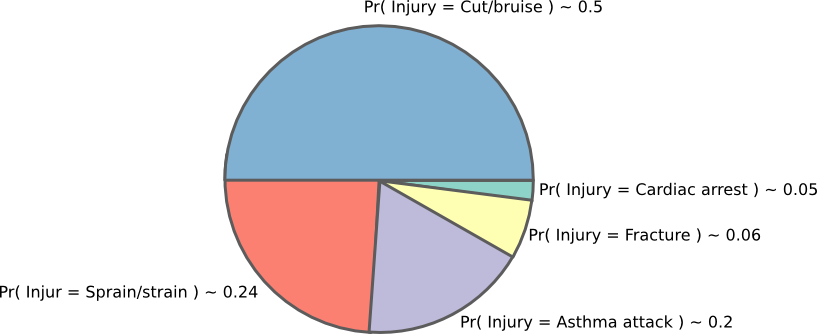
Instead of:
Pr( Asthma )
Condition on the characteristics of the event:
Pr( Asthma | Seated, Indoors, Alcohol, etc... )
And ignore those things which don't matter:
Pr( Asthma | Indoors )
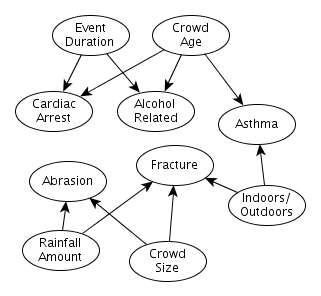
Using data and algorithms:
Analyse the data sets for relationships.
Using experts and their knowledge:
Elicit knowledge from experts about relationships.

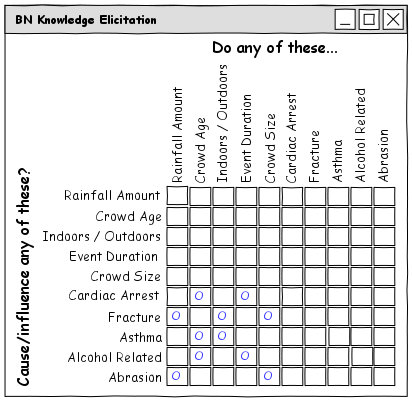

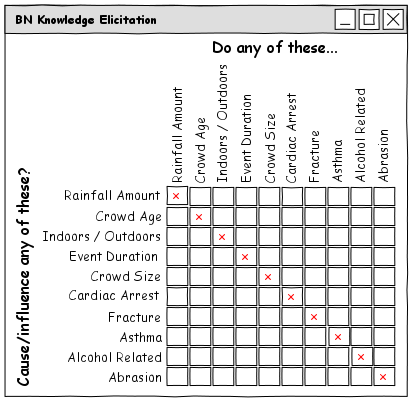
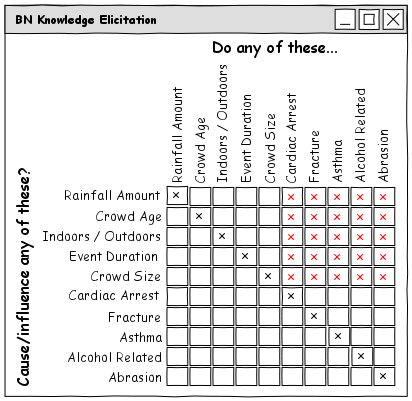
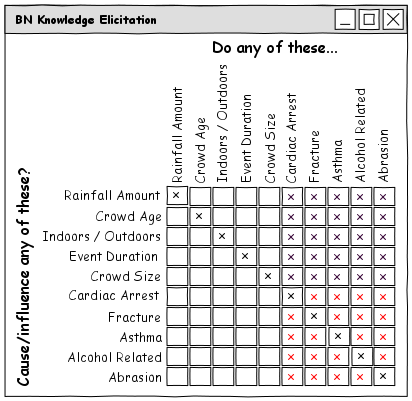
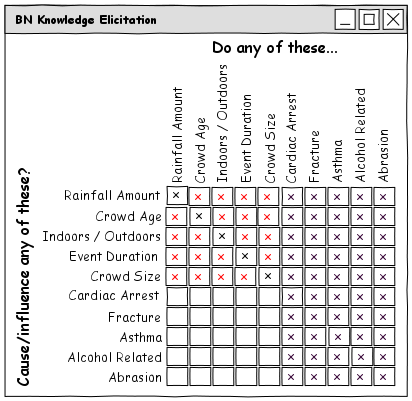

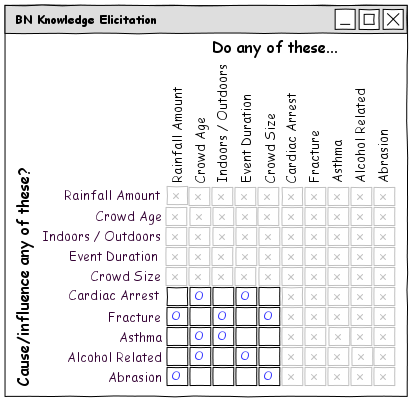
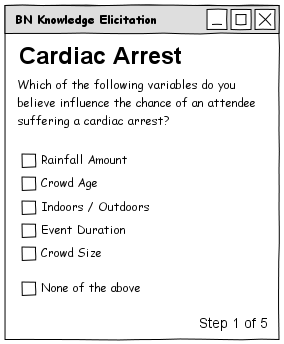
verb
A word I just made up for this talk...
All participants have finished.
or when
A certain time has elapsed.
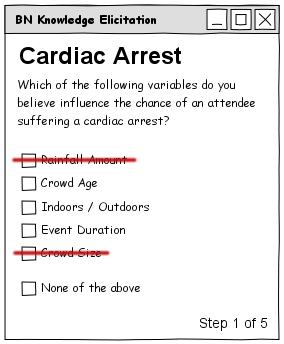
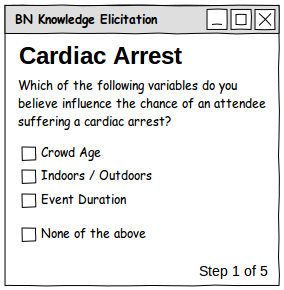
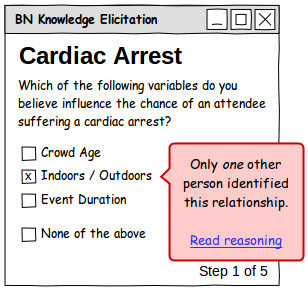
Provide them with results from other participants.
Ask them to clarify or correct their stance.
The parents of each variable cease to change.
or when
A certain number of rounds has completed.